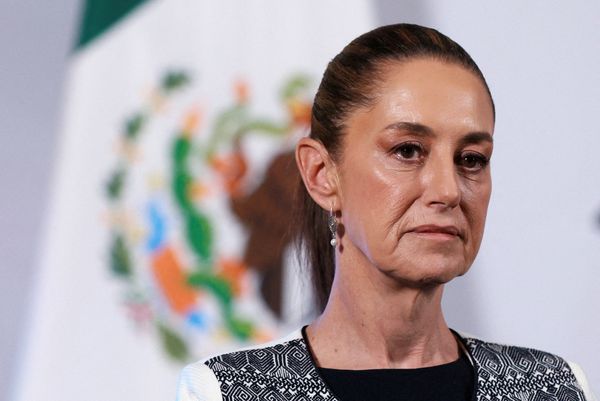
Two teenage girls cycle through Tasmanian woods. One of them is wearing a red coat: always a bad sign. The landscape, punctuated by vertiginous cliffs, looming sea stacks and native forest, is bathed in the raw blue-tinged light particular to small-town mysteries influenced by Twin Peaks. And sure enough, before the spooky opening credits have rolled, one of the girls is drawn into the forest by some weird lights. Are they torches? Aliens? Lynchian hallucinations? I haven’t got a clue, but the girl drops her bike, wanders off, and all we’re left with is the obligatory closeup of the spokes still turning.
So begins The Kettering Incident (Sky Atlantic), billed as the first adult drama filmed in Tasmania, written by a host of Australian talents including Victoria Madden, Cate Shortland and Andrew Knight, and starring Elizabeth Debicki, who is just as good here at fusing mettle with fragility as she was in The Night Manager. The first of eight episodes is a spare, richly atmospheric, Scandi-noirish and largely incomprehensible affair. Not that I’m complaining; if I understood anything this early on, I would feel cheated.
Debicki is Anna Macy, the girl who was with Gillian Baxter when she disappeared. This is the incident of the title that has become so much a part of the coastal town’s identity that the local cafe sells commemorative “Kettering Incident” snow globes alongside its strong black coffee. Shortly after Gillian’s disappearance, Macy left Kettering and we meet her 15 years later working as a doctor in London, where she is plagued by migraines, nosebleeds and blackouts lasting hours at a time. A colleague asks if she experienced any trauma as a child. “I’m not bloody mad,” she snaps. “Far from it,” her friend replies. “All you have is the fear of it.” Fear, in The Kettering Incident, is so pervasive that it is virtually a character in its own right, as is Tasmania: remote, stunning and perpetually and metaphorically misty.
After one such blackout, Anna wakes up inside a hire car with a passport, boarding pass and no luggage. She is back in Kettering, where all sorts of stranger things are happening. Frozen birds drop out of the sky, across which sweeps the green glow of the aurora australis. Massive moths behave unmothily. Threatening notes are received. There are disputes between loggers and “greenies” camped out in the forest. Everyone looks suspicious – and extremely cold. Some locals welcome her. Some hold her responsible for Gillian’s disappearance. Others, including her mother, give her a wide berth. A local girl, Chloe, who confesses to Anna that she, too, sees “the lights”, has a nosebleed. “My mum calls this place the Hotel California,” she tells Anna, before inviting her to a forest party, which, considering the foreboding vibe, sounds about as appealing as an invitation to the White House. “You can’t leave even if you do check out.”
So basically there is no point in Anna leaving: not 15 years ago, and not now. She may as well go to the forest party, which is creepy as hell. She takes drugs with the local disaffected youth, dances to trance and demands Chloe take her to “the lights”, whatever they are. No doubt The Kettering Incident will unfold into one of those disappointing series where the reveal is much less mysterious than you imagined, but for now I am happily lost in the Tasmanian mist.
The Real Marigold Hotel (BBC1) is even more unsettling. It is billed as the “authentic experience of eight famous senior citizens” living together in India for a month to see if they want to retire there. But my first question was to wonder if India had been consulted as to whether it wanted them. By the time Lionel Blair, the oldest member of the group at 87, had described Kochi, in Kerala (a tropical paradise in the south of India known as God’s own country for its beauty and diversity of religions and cultures), as “for want of a better word … a shanty town”, I had my answer. Gesturing at the 16th-century mansion built by Portuguese merchants, where they are waited on hand and foot by Indian housekeepers, cleaners and cooks with the patience of saints, he said with disdain: “When I first started touring, I stayed in places like this.” Going outside the door, he later added, is “horrific”.
Some of the travellers are lovely, though. Miriam Stoppard gamely boogies away at a festival parade. Amanda Barrie declares Kochi has “the edge on Eastbourne, quite frankly”. Dennis Taylor strokes an elephant with a massive grin on his face. Paul Nicholas buys some pants. Otherwise, it’s just a bunch of Brits behaving badly abroad, saying the kind of things that make you wince when they come from the mouths of your own elderly relatives. Saying that, my seventysomething Indian parents absolutely love it.







